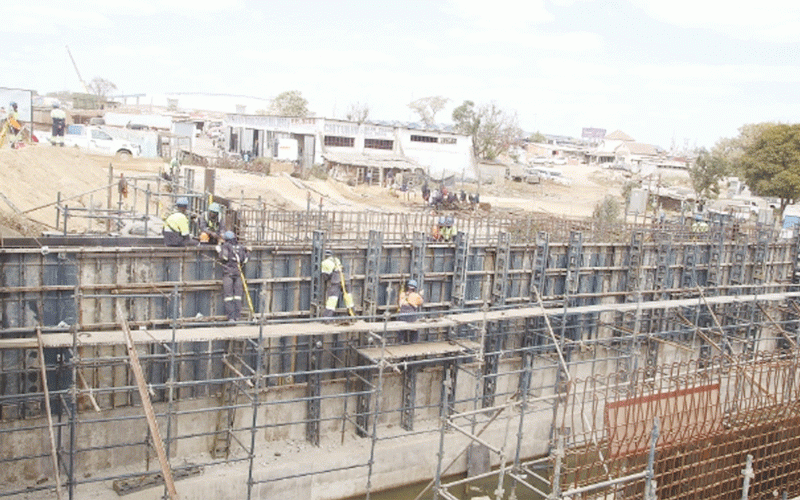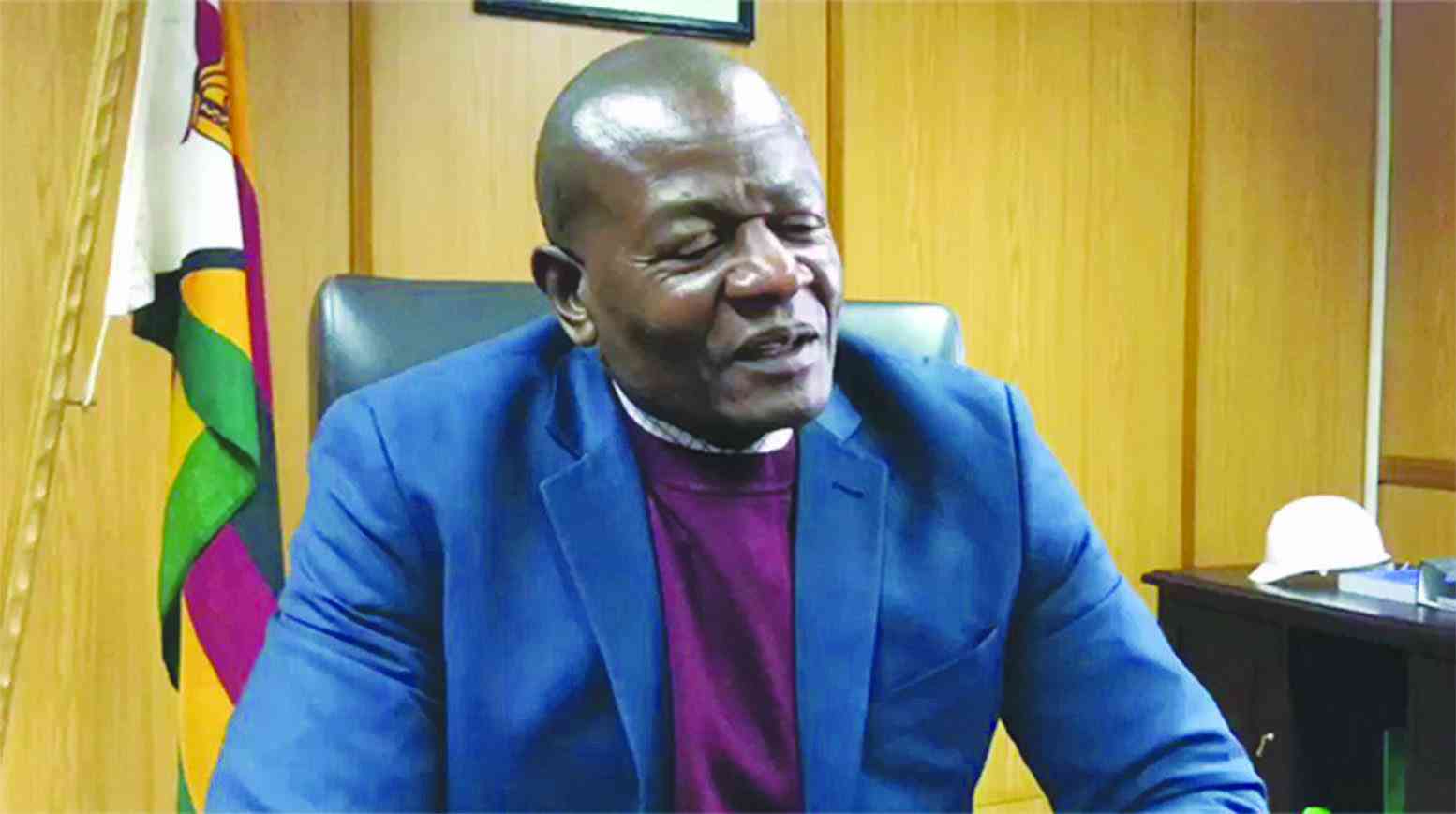
SO the Zanu PF regime is exceedingly delighted over the US$1,5 billion Manhize steel project in Mvuma, the US$300 million Beitbridge Border Post expansion, the Mbudzi Interchange and many other supposed “developmental projects” which have been touted as President Emmerson Dambudzo Mnangagwa’s “flagship” achievements.
It actually appear as if State media journalists are now compelled to report on these programmes on a daily basis. Quite honestly, I now believe there are journalists who have been assigned to specifically cover Manhize, road rehabilitation and Beitbridge.
Not too long ago, the US$88 million Mbudzi Interchange and US$121,7 million Gwayi-Shangani Dam — which are currently under construction — had pride of place in the State media, but that excitement has somehow waned.
Maybe this is on account of the slow pace of construction and repeatedly missed deadlines — on top of various scandals associated with contracts and compensation.However, Manhize — portrayed as a “game-changer” with the potential of becoming Africa’s largest integrated steelworks (producing 1,2 million tonnes of steel annually) — is now the darling of Mnangagwa’s administration.
Amid all the excitement, I, however, still wonder: Is there really anything to celebrate here? Should Mnangagwa be proud of these supposed achievements — to be regarded as some feather in his cap?
Above all this, why are some sections of ordinary Zimbabweans apparently praising the regime for seemingly “growing the economy”? I am tempted to believe that Zimbabweans are probably the easiest people to deceive on this planet.
Why do I make such a bold declaration?Well, it’s simple, really.
Before we jump and ululate in a joyous celebration, we need to take a deep breath and ask some pertinent questions.For starters, why is Zimbabwe so jubilant over a new iron and steel plant from China when we ran down our very own in Redcliff?
- Binga villagers dig in over relocations
- Concerns grow over fate of Binga villagers
- Villagers’ relocation to cost US$2m
- Binga villagers dig in over relocations
Keep Reading
Did we not possess our home-grown ZiscoSteel, which at its peak also produced 1,2 million tonnes of steel each year, employing over 5 000 people (plus 50 000 downstream), and was the country’s largest foreign currency earner?
What led to its demise?The problems began to show in 1986, after an official inquiry into the State-owned enterprise’s operations discovered “mismanagement, poor planning and nepotism” at the company. The report also found that due to antiquated equipment that had not been refurbished in years, the plant had become very expensive to run.
By 1993, the company was operating at 30% capacity — with the Number 4 blast furnace frequently breaking down.In 1996, a Chinese firm was awarded a tender worth US$500 million to resuscitate the blast furnace, but the work was never done — such that by 2000, the furnace was no longer functional, while ZiscoSteel’s plant and equipment were obsolete.
In 2005, auditors discovered that money (possibly in the millions of US dollars) from the sell-off of the company’s foreign subsidiaries was missing.The National Economic Conduct Inspectorate handed Obert Mpofu, then Industry minister, a dossier on corruption. Mpofu told a parliamentary committee that the dossier contained “names of my colleagues in the ministry, MPs and employees at Zisco”.
However, then State Security minister Didymus Mutasa later said the report “does not exist”, leading to Mpofu backtracking on earlier assertions.Company assets vanished into thin air, with some disposed of (mostly to those aligned to power) at ridiculously low prices.
So, who is to blame for Zimbabwe losing its own mega iron and steel company? Is it not the same Zanu PF we are celebrating today for bringing on board a foreign firm (Dinson Iron and Steel Company) to make billions of dollars from our resources at Manhize?We can say the same about all the other so-called Mnangagwa “flagship” programmes.
Why is Hwange now being expanded for US$1,5 billion — with a staggering US$1,2 billion being a loan from China (which obviously needs to be paid back)?Were we not supposed to have been regularly refurbishing and modernising the country’s power generation units since we gained independence in 1980?Yet, here we are — saddled with ancient equipment that is near obsolete — resulting in perennial power crises, whereby we have no electricity for up to 12 or more hours a day.It is reported that the economy is losing US$80 million each month to these electricity outages, which are adversely hampering our industrial, agricultural and mining sectors.
In all this, a 2019 forensic report by the Auditor-General — conducted by PricewaterhouseCoopers — cast a very dark shadow over the State-owned power utility Zesa Holdings and its shady operations.
It was exposed that millions of US dollars were siphoned through elaborate schemes of over-payment on transformers and other equipment, purchase of obsolete equipment, luxury vehicles and other extravagant accessories for executives.
Shockingly, all this pales into insignificance when compared to the graft in the highest echelons of the company, which I chronicled in an article titled How high-level corruption at Zesa plunged Zimbabwe into darkness.
Why should we celebrate when Mnangagwa commissions a mere two units at Hwange, when the country remains stuck in perpetual darkness?It is painful to imagine that we live in the dark ages yet we have the largest reserves of lithium in Africa, the second largest platinum deposits in the world, are the seventh largest producer of diamonds, and we possess the second largest gold reserves per square kilometre.
This is not to mention black granite, chrome, nickel, copper, asbestos, silver and any other minerals.
How did our road network end up in such a sorry predicament, yet it facilitates the transportation of these high-value minerals daily?If the so-called “spaghetti roads” were already taking shape during the colonial era, as the sophisticated flyover along Simon Mazorodze Road (near Mbare, Harare) proves, can anyone imagine the phenomenal state of our road network by this time had the Zanu PF government been faithful with our national resources?
Nevertheless, did we not watch as former Zimbabwe National Road Administration (Zinara) boss Frank Chitukutuku lose two upmarket houses, a fleet of vehicles and shares in two businesses believed to have been bought from proceeds of corruption?
The same Zinara reportedly paid US$70 million to a non-existant company for consultancy to help the parastatal to find a suitable road contractor.I am deliberately selecting only a few cases since there are too many to mention in one article.
I, however, cannot sign off without mentioning one of Mnangagwa’s “flagships” — the drilling of boreholes in urban areas.Just as with our roads, why has the Zanu PF-led regime not invested heavily in the construction of sufficient water sources across the country, with modern distribution infrastructure, in the past 43 years?
Inasmuch as the Gwayi-Shangani Dam may appear commendable, nonetheless most towns and cities have no potable water.I could go on and on, but I believe the point has been made.There is absolutely nothing to celebrate in Mnangagwa’s “flagship programmes”.
They are definitely not “game-changers” by any stretch of the imagination.If anything, had our government been proficient at its work, Zimbabwe would be competing with the best in the world.







